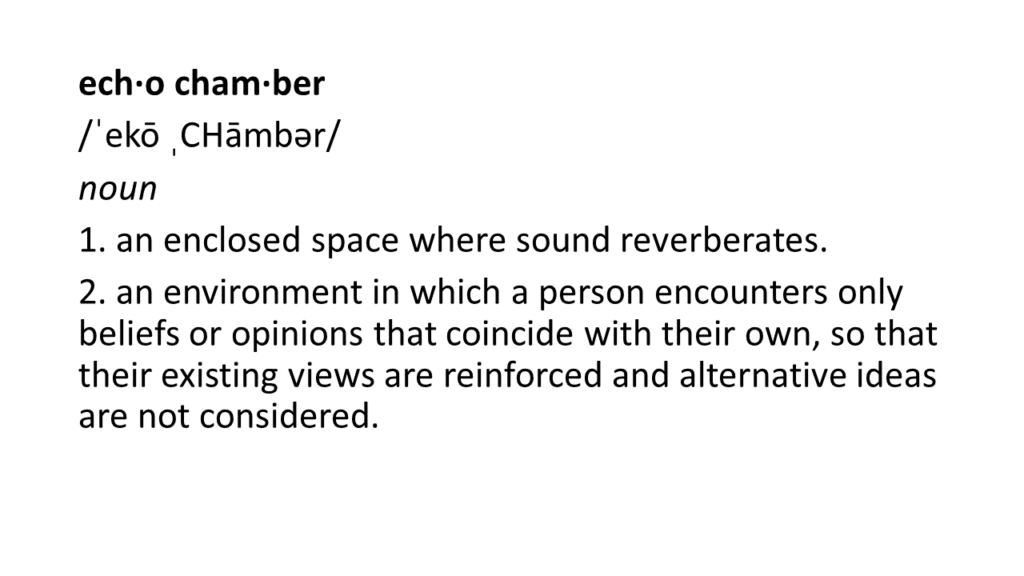The last presidential election in the United States brought created an awareness of “echo chambers.” What is the sales version of the echo chamber? Where is the echo chamber most harmful to sales leaders? And most importantly,what can you do about it? How can you avoid the echo chamber?
An echo chamber is essentially a metaphor for a closed system in which opinions reverberate and are reinforced through repetition.
In an echo chamber…
- Contrary views are drowned out.
- Diverse opinions get attacked and overwhelmed.
- A breadth of opinions mutates into what looks like consensus.
- Nuance gets lost.
- Absolutes (“always”) replace qualifiers and conditions (“sometimes”).
- A simplistic view becomes the only view.
- Confirmation Bias and Availability Bias run amok.
- Confirmation Bias: The tendency to search for, believe, and value only information we agree with
- Availability Bias: The tendency to think something is always true because an example is easy to find or construct.
The net result of the echo chamber is that critical thinking goes down and people become susceptible to errors in judgement based on limited or erroneous information.
Echo chambers are deadly for sales managers
Echo chambers pose a particular problem for sales managers:
THEY HURT SALES!
Echo chambers generally suck, but they’re particularly deadly in these three cases.
The three deadliest echo chambers
- Improving products services
- Echo chambers (like sales-driven product feedback loops) lead to myopic views of your value
- Optimizing sales operations and service
- Echo chambers (like IT-driven technology scans) lead to missed opportunities to leverage technology
- Developing sales talent
- Echo chambers (like manager-driven needs analysis) lead to misguided interventions and the wrong turnover
These three areas most directly affect win rates, revenue, and profit.
So what can sales managers do to avoid the echo chamber?
How to avoid the echo chamber
We recommend four general strategies for avoiding the three deadliest chambers.
- Expand your sample size
- Are you getting enough data points before you form an opinion?
- Can you triangulate?
- Increase the diversity of viewpoints
- Are you seeking and permitting contrary views?
- Have you surfaced all the relevant viewpoints?
- Gather independent views independently
- Can you avoid group think and mob mentality?
- Critically examine incoming data
- Are you looking beyond confirmatory evidence?
- Do you question it because examples are so easily available?
Answer “yes” to these questions, and we predict you will avoid the echo chamber. Good luck!
Dan and Matt

